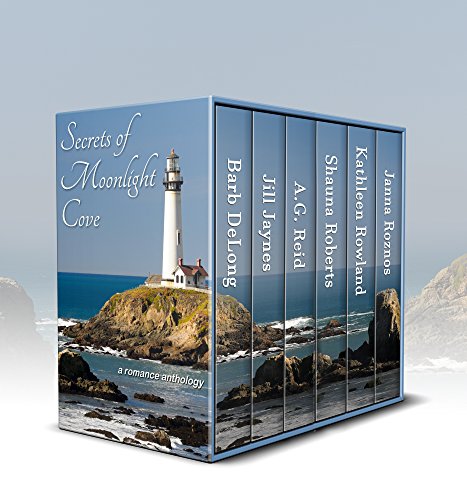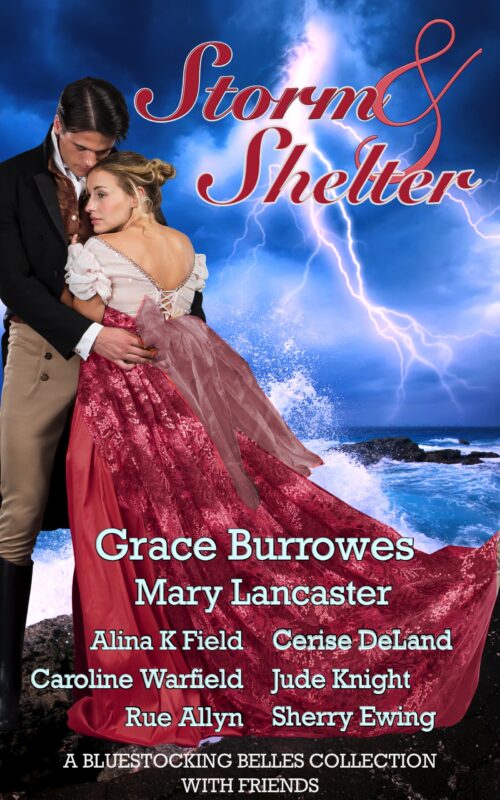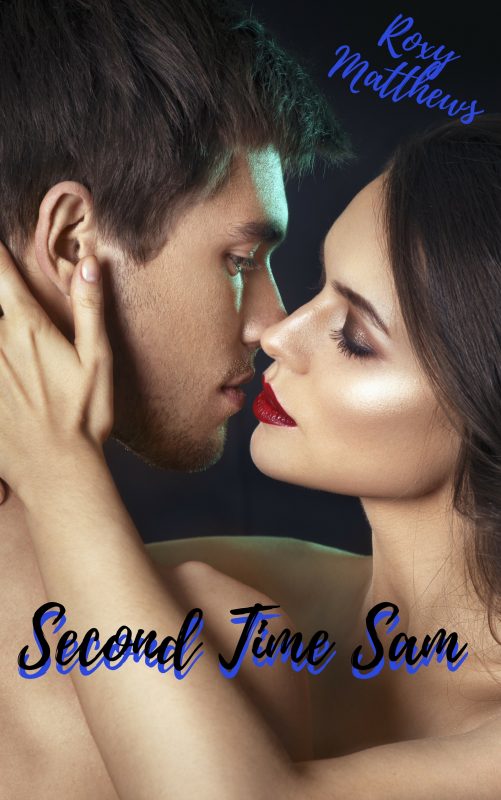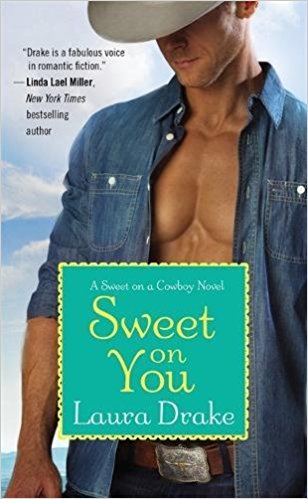Joan Johnston – Success Is A Journey
May 31, 2006 by A Slice of Orange in category Archives tagged as Author Interview

After twenty years, forty-six books and eight New York Times bestsellers, Joan Johnston is a savvy business woman who knows a thing or two about success. Here she shares some of her secrets.
Q – Is there a downside to success? What are the challenges that face you now that you are a success?
A – It’s harder to write with money in the bank. Forty-six books later, it’s difficult to remember the time when if I didn’t finish the book and get the “on acceptance†check I wouldn’t be able to pay the light bill or the car payment or the rent (I couldn’t afford to buy a house). That can be a tremendous impetus to keep the seat of the pants to the seat of the chair and be productive.
It’s also harder to write (endure the isolation of writing) now that I’m a happier person. When I started writing I was in an unhappy marriage and had a job I didn’t like. If I went into the closet (literally) to write, I could escape from a life I didn’t particularly like. Eventually, I got out of the marriage and the job (went from being a lawyer to being a college professor, then to writing full-time). At first, writing helped pay the bills. Then it became who I was. I’ve been working for balance ever since.
Things have changed a great deal in the publishing industry, so you really need to be productive (write at least two books a year) to keep your name in the public eye. In the old days (before Nora Roberts proved them wrong), publishers believed you would be “overexposed†if you published more than one book a year. They still believe one hardcover a year is plenty, but they would like to sell that paperback you write as well. That really gives you three books out a year (including the paperback reprint of the hardcover) and maybe four, if they decide to reprint something from your backlist.
Can you write only one book a year and still be successful? Yes. But you’re not going to grow your career very fast, and you may even lose ground. Nowadays, publishers encourage you to write as many books as you can per year. More money for them, more money for you. Of course, less time for you to spend that money…
Q – After so much success, do you feel successful? Do you ever still feel like a hack? Do you ever feel afraid when you start a new book?
A – You never get over feeling afraid that this will be the book where people realize you could never really write. When I go back and read books I published years ago, I’m amazed at how good a read they are. I marvel, did I really write that? Where did I come up with those ideas? How did I know that would make you cry? Make you laugh? Make you empathize so much with the characters? And I wonder how I will ever do it again.
I still have feelings of inadequacy all these years—and books—later, precisely because writing is never easy. It’s always work. It’s always a challenge. New characters, new situations, maybe even a new genre, if I’m being adventuresome. In the back of my mind is a mantra that someone must have put there forty-six books ago—you’re only as good as your most recent book. That’s a lot of pressure to live with, book to book to book. And you’re always trying to write a better book—despite the fact the book you just wrote is the very best book you could write.
But it’s no different than any other creative job, where you can’t quit being creative and hope to stay on top. You have to challenge yourself constantly to do better, to do more, to dig deeper, to find something that pulls your heartstrings and “go for the choke.â€
Q – As a bestselling author forty-six novels, do you ever have a problem coming up with new ideas?
A – No. The problem is getting them down on paper in some semblance of what was in your head.
Q – Have you ever suffered writer’s block? If so, how did/do you get past it?
A – Yes. Suffered through it for a year (when it made me physically sick to go anywhere near the computer) and went back to work. This happened about ten years ago, in a career that’s now spanned more than twenty years, so anyone with this problem right now should just grit their teeth and keep at it. There are so many excuses to quit writing. You have to want to keep doing it.
Q – There’s a great quote on your website “It isn’t the process. It’s the product.†I love that. But have you noticed if a certain process produces the best results for you? If so, what?
A – I know there are people determined to write 5 or 10 or 12 pages a day—no matter what. I tried writing like that, but it didn’t work for me. I might get 5 pages one day and none the next—because I stopped to think about where I’m going next, and what the long term results of that character’s choice are going to be.
Yes, you can put words on paper and edit them later. But imagine a Y in the road and your character can go left or right. If you need to finish pages and arbitrarily head right, what happens 50 pages later when you realize your character should have gone left? You’re a long, long way from where a person going left at the Y in the road would be.
I think too often writers won’t throw away the fifty pages. So they fake it, make up some explanation for keeping on in the direction they’re going, and end up with a book that’s less strong because of it. I vote for stopping and thinking, even if it means I don’t get a prescribed number of pages written in a day.
I’ve written 50 pages in a day. I’ve written a paragraph in a day. It isn’t how many pages you get done day-to-day, it’s staying focused on the book day-to-day, even if you’re not sitting at the computer to do it. Most of the book is done in my head long before I sit down to write it. So, it isn’t how you get it down on paper—whether it takes you 3 months or 3 years to write the book. It’s the quality of what you have on paper when it’s done.
Q – You say you learned to “go for the choke” and create characters that lived and breathed and tore your heart out. What did you change in your writing that allowed you to do that?
A – It’s not enough to tell what the characters are doing. You need to show the reader what the characters are feeling while they’re doing it.
Q – You started out writing with a six year old and a six month old. Where did you find/make the time to write with them?
A – If you’re determined to write, the time is there. Get up earlier. Stay up later. Write during lunch. Write when the rest of the family is watching TV. Making time is all about wanting to make time. It’s there. It’s how you choose to spend it.
Q – Is it any easier to make that time to write now or does life still get in the way? If so, how?
A – Life is always in the way. My children are grown now—and I’m baby-sitting grandchildren. I’m dating, which takes a lot more time than having a steady significant other. I’m trying to find time to exercise, to read in the thriller genre, to finish the book I’m working on, to sell a house, buy a house, pay the bills. Okay, live a very busy life. Because you write at home, it’s always a challenge to make it a priority. You just have to do it!
Q – On your website you talk of a friend in the business who’s given you invaluable advice on how best to do promotion to help your sales. Can you share any of that advice?
A – I believe in self-promotion, but it’s a full-time job—web site, newsletters, postcards, contests, giveaways. Once you can afford to have someone else take over that responsibility, I’d recommend it.
Q – What are you dying to try next?
A – Thrillers! I’ve always had some sort of mystery or suspense—murders and suicides—in my romantic family sagas. I’d like to do something that’s more keyed to the romantic suspense/suspenseful romance genre.
Q – Can you tell us about your next project?
A – I’m working now on then next book in my Bitter Creek series. It’s the sequel to The Next Mrs. Blackthorne, with continuing characters Kate Grayhawk and Jack McKinley and Breed Grayhawk and a young woman who’s a new character. This book gave me the opportunity to do research in San Antonio and Austin, Texas, including great interviews with the DEA, the Texas Rangers, war veterans from Iraq who are amputees, a private tour of the State Capitol in Austin, and discussions with physical and speech therapists. Does that give you any hints where I’m going? It will be a hardcover when it’s finally done. It doesn’t have a title yet. That’s a first for me. I’ve asked my readers to help, and have gotten a number of suggestions, one of which I’m leaning toward, but which hasn’t yet gotten finally approval in New York.
Q – What’s the best thing about being a writer?
A – Getting paid for doing something I’d be happy to do for free.
Q – Are there any words of inspiration on your computer, in your office or in your mind when you write?
A – “Success is a journey, not a destination.†This framed quote from a friend has sat on my desk for a very long time. It has never meant so much as it does now, when I’ve achieved what most people would call “success†in my field. Becoming a New York Times bestselling author wasn’t the end of the challenges, it’s only the beginning.
0 0 Read moreEmily Brightwell – Never Tell Me The Odds
May 2, 2006 by A Slice of Orange in category Archives tagged as Author Interview
By Dana Diamond
What do you expect out of a cozy mystery author? Sweet, gentle and demure?
How about warm, funny-as-hell and candid about everything from grave robbing to muses and the worst advice she’s ever received! After thirty-plus books and eighteen years in the business, cozy mystery star, Emily Brightwell, knows what it takes to make it in this business. Lucky for us, she sat down to dish with me for Orange Blossom’s The OCC Interview.

Q – Are there any words of inspiration on your computer, in your office or in your mind when you write?
A – “Never tell me the odds†and “Crap can be fixed.â€
Q – Do you have any writing rituals? Schedule?
A – My Mrs. Jeffries books are always 11 chapters long and I also do the ritual cleaning of the office whenever I start a new book. Actually, it’s about the only time my office gets cleaned.
Q – What is a cozy mystery?
A – A comfortable setting, a murder that isn’t graphically described, a list of suspects and no sex – though sex can be a motive for the crime.
Q – Why do you think cozy mysteries are so hot right now?
A – Maybe we’ve all over-dosed on serial killers, CSI, and too many episodes of Law & Order. The popularity of the sub-genre waxes and wanes, sometimes it’s hot, sometimes you’re only writing for a niche audience. But I love writing them.
Q – Among other things, your Mrs. Jeffries books are known for their accurate depiction of Victorian England. What is the best or most interesting piece of information you’ve found?
A – I found that the spikes on top of iron fences surrounding Victorian graveyards were put there to cut down on grave robbing. Robbers used to steal corpses and then sell them to medical schools.
Q – What’s next for Mrs. Jeffries and the rest of the cast? Is there anything you can tell us without spoiling any surprises?
A – There is a surprise coming in the book that I’m working on right now – I just hope it doesn’t make everyone hate me.
Q – What are you dying to try next? Why?
A – Actually, I’d love to write a political thriller. I hope to do so one day.
Q – You’ve written YA’s and romance too. Which is your favorite genre to write in? Why?
A – I love all genres, but I most enjoy writing mystery and YA. Romance was actually very difficult for me.
Q – Why was romance difficult for you?
A – Because I kept killing people.
Q – Which is your favorite of your books? Why?
A – My favorite book is the very first YA I ever wrote; Remember Me became very special when a dear friend died as I was writing the manuscript. I couldn’t write the last ten pages – and I swear, this is true, I was in my office feeling sorry for myself when I suddenly heard Nancy’s voice in my head. She was a schoolteacher so her voice was very distinctive – she said, “For goodness sake, Cheryl, quit procrastinating and get those last ten pages done. I want to see how you’re going to end it.†I finished the book in less than an hour. The book was dedicated to her memory. She was a wonderful person and I still get fan mail for this book.
Q – Is there a downside to success? Or what are the challenges that face you now that you are a success?
A – There is no downside to success.
Q – How do you stay motivated? What drives you to keep writing?
A – Pure and simple, I love to tell stories. I just wish I could tell them without having to put in so much hard work.
Q – Muses or hard work?
A – Hard work – if I waited for my muse I would spend most of my time sitting on the couch watching Korean Soap operas (which, by the way, I do enjoy but only if they’re dubbed in English)
Q – What is the best advice you’ve ever received?
A – I heard it in a Star Wars movie – it was Han Solo and he said, “Never tell me the odds.â€
Q – Worst advice?
A – I’ve heard plenty of bad advice – but the absolute worst was to send a “thank you†note to editors who reject your work and make it clear they have no interest in seeing anything else from you. Rejection is bad enough, thanking someone for it is just one step away from out and out masochism.
Q – What is the one thing you’ve never been asked, but you wish someone would?
A – I wish someone would ask me how many words I’ve written that didn’t get published!
Dana Diamond is the OCC/RWA Secretary, a columnist for OCC’s award winning Orange Blossom Newsletter, a contributer to The Writer’s Vibe and hard at work on her book. You can visit Dana at http://www.danadiamond.blogspot.com/ or http://thewritersvibe.typepad.com/the_writers_vibe/
2 0 Read moreA Visit with Emma Holly and Susan Elizabeth Phillips
August 20, 2005 by A Slice of Orange in category From Our Archives tagged as Author Interview
OCC just celebrated “Awesome August Here are the details of the day from a Program Director’s POV:
We had Emma Holly visit us in the morning, and this five foot dynamo gave a workshop that made several women start fanning themselves from the sheer HOTNESS of the content. That was a first for me in my time as Program Director and I really enjoyed her tips on sexy writing. She gave us many tips to spice up our scenes and first piece of advice was to “get in touch with our kinks,” so Ladies and Gentlemen:GET BUSY!
Emma kept making me laugh because she’d get the steam level to rising, then she’d pause, glance at us, take a lo-o-o-ng sip of her water, and pick up where she left off. Her comedic timing was dead-on funny. She gave two of her ARCs (advanced release copies) away as door prizes and I don’t know who won them but I certainly hope that one of those people will loan their book to me when they’re done. I don’t know if I can wait until October 4th to find out who did what to who.
The Board of Directors changed tactics and strategies all day, almost as fast as America West changed Susan Elizabeth Phillips’ flight schedule! (Herein, she’ll be referred to as SEP to save typing.) We started lunch thinking we’d see SEP at about 12:30 and by the end of lunchtime, this Program Director was wondering if SEP would EVER get to California. We updated the membership over the next hour, “plane is delayed, plane left, etc.,“ until finally the plane arrived and I heaved a sigh of relief. It was the first time I’d ever been happy to have my phone ring in the middle of a meeting.
I spoke with SEP and she told me that “I didn’t even need to introduce her. She’d have her notes in her hand when she stepped out of the car and she’d just run in and start talking”and darned if that isn’t exactly what she did—another first for me in Programs. God she gave the best talk! Diane Pershing told me afterward that she rarely takes notes and SEP had her scribbling away.
We found out that Susan is a “seat of the pants” writer, that she has a tremendous fear of the blank page and that it takes her about a year to write each book. She doesn’t take a break in between books. She gave us tips on writing subplots, flashbacks, how to fix scenes and many, many more “million dollar” tips.
If anyone missed getting a handout and would like one, just send a note to us on the Craft Loop or email me privately and I’ll forward it to you. Susan gave me more in 40 minutes of talking that I ever knew was possible. And she told me four times that we were the most organized group that she’d ever seen.
Thanks to everyone on the Board who zigged and zagged with each change to the schedule and to all the OCC members that stayed on site and waited for SEP so we could give her a tremendous welcome!
The last tidbit I wanted to add about August. Susan Elizabeth Phillips told me that OCC members have the best collection of shoes that she’s ever seen. I thought that was pretty amusing and wanted to encourage you all to bring that fancy footwear to Conference next year so you could have a built in conversation opener .
So, August was awesome and I am on to planning the September meeting with Michele Scott and Leanne Banks. Michele’s talk is on “Getting Your Foot in the Door” and Leanne will be talking about “Developing the Relationship Between the Hero and Heroine.” I especially can’t wait for the brainstorming session that Leanne is conducting later in the evening during the guest reception. I hope to see you all volunteering at the September meeting so you can be part of that.
See you next month!
~ Jen Crooks
0 0 Read moreAffiliate Links
A Slice of Orange is an affiliate with some of the booksellers listed on this website, including Barnes & Nobel, Books A Million, iBooks, Kobo, and Smashwords. This means A Slice of Orange may earn a small advertising fee from sales made through the links used on this website. There are reminders of these affiliate links on the pages for individual books.
Search A Slice of Orange
Find a Column
Archives
Featured Books
SECRETS OF MOONLIGHT COVE: A Romance Anthology
Moonlight Cove, where everyone has a secret…
More info →Newsletter
Contributing Authors
Search A Slice of Orange
Find a Column
Archives
Authors in the Bookstore
- A. E. Decker
- A. J. Scudiere
- A.J. Sidransky
- Abby Collette
- Alanna Lucus
- Albert Marrin
- Alice Duncan
- Alina K. Field
- Alison Green Myers
- Andi Lawrencovna
- Andrew C Raiford
- Angela Pryce
- Aviva Vaughn
- Barbara Ankrum
- Bethlehem Writers Group, LLC
- Carol L. Wright
- Celeste Barclay
- Christina Alexandra
- Christopher D. Ochs
- Claire Davon
- Claire Naden
- Courtnee Turner Hoyle
- Courtney Annicchiarico
- D. Lieber
- Daniel V. Meier Jr.
- Debra Dixon
- Debra H. Goldstein
- Debra Holland
- Dee Ann Palmer
- Denise M. Colby
- Diane Benefiel
- Diane Sismour
- Dianna Sinovic
- DT Krippene
- E.B. Dawson
- Emilie Dallaire
- Emily Brightwell
- Emily PW Murphy
- Fae Rowen
- Faith L. Justice
- Frances Amati
- Geralyn Corcillo
- Glynnis Campbell
- Greg Jolley
- H. O. Charles
- Jaclyn Roché
- Jacqueline Diamond
- Janet Lynn and Will Zeilinger
- Jaya Mehta
- Jeannine Atkins
- Jeff Baird
- Jenna Barwin
- Jenne Kern
- Jennifer D. Bokal
- Jennifer Lyon
- Jerome W. McFadden
- Jill Piscitello
- Jina Bacarr
- Jo A. Hiestand
- Jodi Bogert
- Jolina Petersheim
- Jonathan Maberry
- Joy Allyson
- Judy Duarte
- Justin Murphy
- Justine Davis
- Kat Martin
- Kidd Wadsworth
- Kitty Bucholtz
- Kristy Tate
- Larry Deibert
- Larry Hamilton
- Laura Drake
- Laurie Stevens
- Leslie Knowles
- Li-Ying Lundquist
- Linda Carroll-Bradd
- Linda Lappin
- Linda McLaughlin
- Linda O. Johnston
- Lisa Preston
- Lolo Paige
- Loran Holt
- Lynette M. Burrows
- Lyssa Kay Adams
- Madeline Ash
- Margarita Engle
- Marguerite Quantaine
- Marianne H. Donley
- Mary Castillo
- Maureen Klovers
- Megan Haskell
- Melanie Waterbury
- Melisa Rivero
- Melissa Chambers
- Melodie Winawer
- Meriam Wilhelm
- Mikel J. Wilson
- Mindy Neff
- Monica McCabe
- Nancy Brashear
- Neetu Malik
- Nikki Prince
- Once Upon Anthologies
- Paula Gail Benson
- Penny Reid
- Peter J Barbour
- Priscilla Oliveras
- R. H. Kohno
- Rachel Hailey
- Ralph Hieb
- Ramcy Diek
- Ransom Stephens
- Rebecca Forster
- Renae Wrich
- Roxy Matthews
- Ryder Hunte Clancy
- Sally Paradysz
- Sheila Colón-Bagley
- Simone de Muñoz
- Sophie Barnes
- Susan Kaye Quinn
- Susan Lynn Meyer
- Susan Squires
- T. D. Fox
- Tara C. Allred
- Tara Lain
- Tari Lynn Jewett
- Terri Osburn
- Tracy Reed
- Vera Jane Cook
- Vicki Crum
- Writing Something Romantic
Affiliate Links
A Slice of Orange is an affiliate with some of the booksellers listed on this website, including Barnes & Nobel, Books A Million, iBooks, Kobo, and Smashwords. This means A Slice of Orange may earn a small advertising fee from sales made through the links used on this website. There are reminders of these affiliate links on the pages for individual books.








































